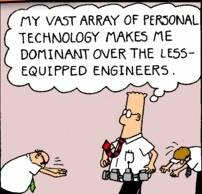January 7, 2016
Constant email checks may increase workplace stress as much as high volumes 0
 New research being presented today at the British Psychological Society’s Division of Occupational Psychology annual conference in Nottingham suggests that it’s not just the volume of emails that causes stress; but well-meaning habits and a need to feel in control. The research by Dr Richard MacKinnon from the Future Work Centre, suggests many people have developed some bad habits when it comes to managing email. Nearly half of those surveyed have emails automatically sent to their inbox (push notifications) and 62 percent left their email on all day. Those who checked email early in the morning and late at night may think they are getting ahead, but they could be making things worse, as the study showed that these habits were linked to higher levels of stress and pressure. The research also shows the role personality plays in our experience of email and how email has the potential to both positively and negatively impact our work-life balance.
New research being presented today at the British Psychological Society’s Division of Occupational Psychology annual conference in Nottingham suggests that it’s not just the volume of emails that causes stress; but well-meaning habits and a need to feel in control. The research by Dr Richard MacKinnon from the Future Work Centre, suggests many people have developed some bad habits when it comes to managing email. Nearly half of those surveyed have emails automatically sent to their inbox (push notifications) and 62 percent left their email on all day. Those who checked email early in the morning and late at night may think they are getting ahead, but they could be making things worse, as the study showed that these habits were linked to higher levels of stress and pressure. The research also shows the role personality plays in our experience of email and how email has the potential to both positively and negatively impact our work-life balance.

































January 12, 2016
A cynic’s field guide to workplace terminology, part three 0
by Simon Heath • Comment, Facilities management, Technology, Workplace, Workplace design
(more…)